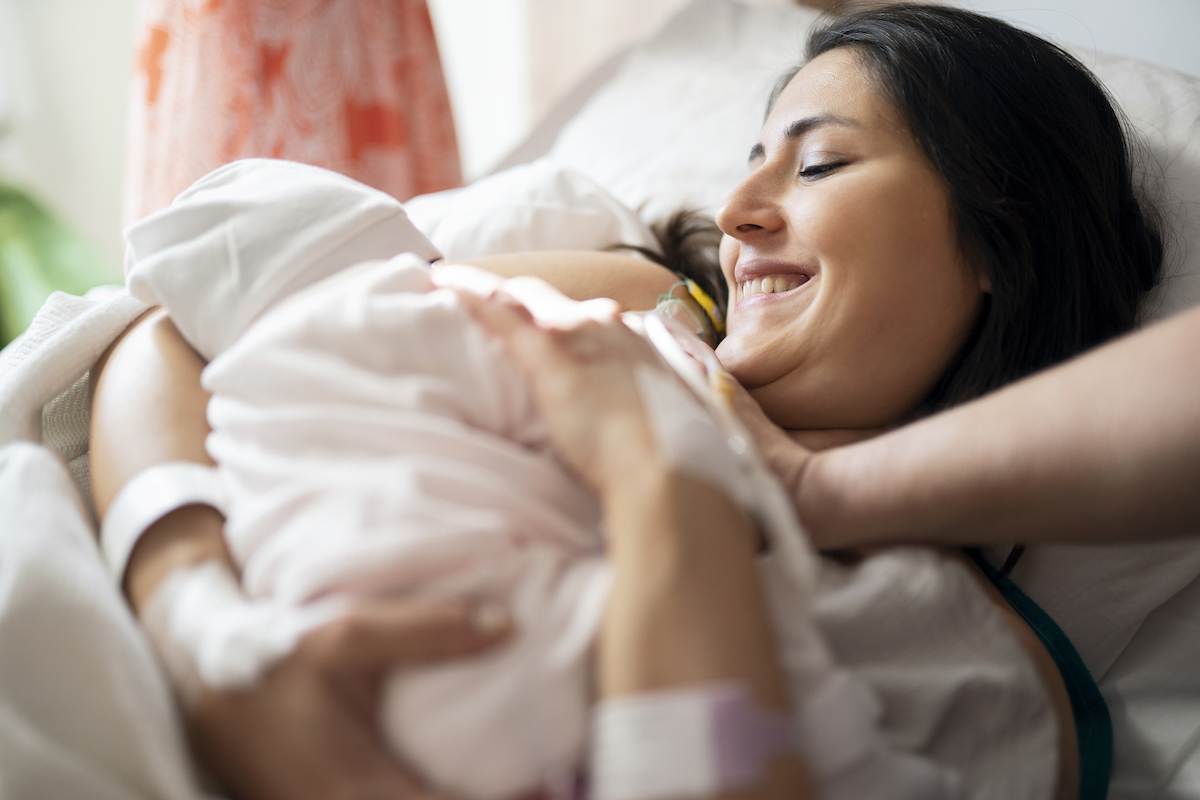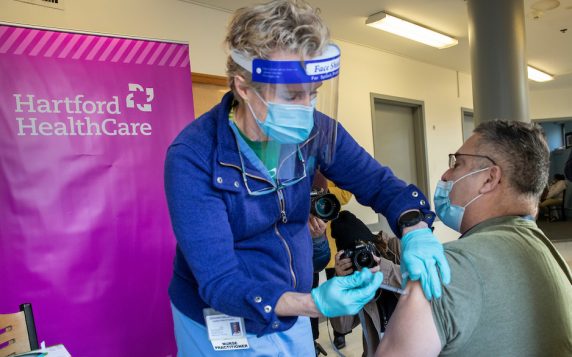A COVID-19 vaccination during pregnancy likely transfers antibodies from the mother to her developing fetus that protects babies after they’re born, according to a Centers for Disease Control and Prevention study released this week.
Infants born to mothers who were fully vaccinated with an mRNA vaccine while pregnant were 61 percent less likely to be hospitalized with COVID-19 in the first six months of their life, according to the study. Vaccination later in pregnancy, from 21 weeks to 14 days before delivery, offered even high levels of protection, up to 80 percent, against hospitalization.
“When people receive an mRNA COVID-19 vaccine during pregnancy,” said Dr. Dana Meaney-Delman, the CDC’s Chief of Infant Outcomes Monitoring Research and Prevention Branch, at a media briefing, “their bodies build antibodies to protect against COVID-19 and these antibodies have been found in umbilical cord blood, indicating that the antibodies have transferred from the pregnant person to the developing infant.
“And while we know that these antibodies cross the placenta, until this study, we have not yet had data to demonstrate whether these antibodies might provide protection for the baby against COVID-19.”
The study reviewed 379 infants at 20 children’s hospitals in 17 states from July 2021 through January. The researchers then divided the infants into two groups: 176 who had COVID-19 and 203 who did not. Of COVID-positive infants, 16 percent of their mothers were fully vaccinated. Of the COVID-negative infants, 32 percent of the mothers were fully vaccinated. The study did not examine the mothers’ COVID status, positive or negative, before or during their pregnancy. It also did not consider the vaccine’s effectiveness against certain variants.
The CDC last summer restated its recommendation that people get vaccinated in the first 20 weeks of pregnancy after new safety data found the COVD-19 vaccine did not increase risk of miscarriage.
“Pregnant persons are a vulnerable population,” said Dr. Elizabeth Deckers, Director of Quality and Safety in Maternal Health for Hartford HealthCare, at the time. “Despite these known risks, only about 22 percent of pregnant individuals have received one or more doses of the COVID-19 vaccine. This is one of the reasons that the American College of Obstetricians and Gynecologists recently recently made a strong recommendation supporting COVID-19 vaccination during pregnancy.”
Even now, however, only a little more than 42 percent of pregnant persons ages 18 to 49 were fully vaccinated as of Jan. 15, according to the CDC. Misinformation that associated the vaccine with infertility and pregnancy complications has slowed efforts to increase vaccination rates among pregnant persons.
“Pregnant persons need to balance the scientific evidence strongly supporting the safety of COVID-19 vaccination with the risks to themselves and their infants if they develop severe symptoms of COVID-19,” said Dr. Deckers after the new study was released.



